Gorbachev, the key man in the opening up of the USSR dies
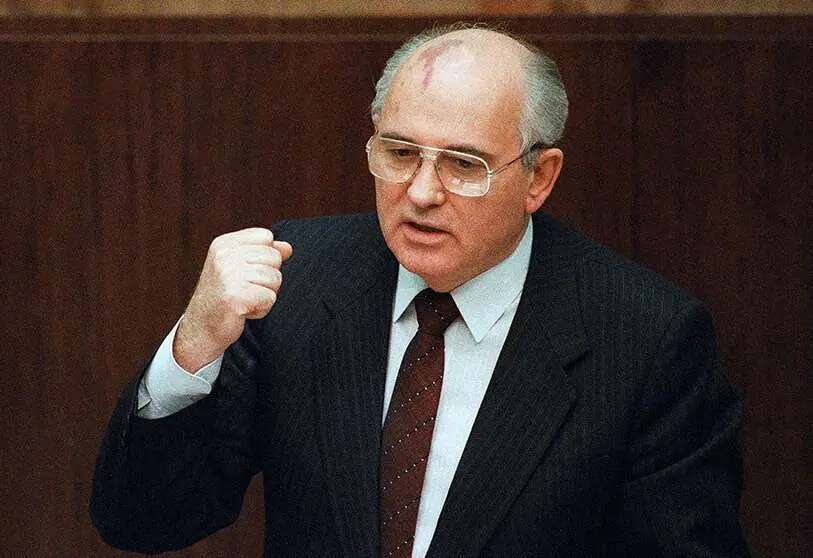
Mikhail Sergeyevich Gorbachev, former president of the now defunct Union of Soviet Socialist Republics (USSR), has died in Moscow at the age of 91 after a long illness and many years out of the media spotlight.
Despite this current media absence, he is a key political figure in the end of the Cold War and the confrontation between the Western, capitalist bloc and the Eastern, communist bloc that lasted for decades until the end of the 20th century.

In the mid-1980s, Gorbachev took full power as president of the USSR in 1988 after previously taking over the leadership of the Communist Party of the Soviet Union (CPSU) in 1985. Mikhail Gorbachev studied law at Moscow State University after a childhood and youth spent in a village in the Stavropol Territory marked by hardship and hard labour in the countryside. After graduating and becoming a lawyer, Gorbachev worked his way up through Communist Party circles, first in his home territory, to become Secretary of the Central Committee in 1978 at the age of 47, displaying political astuteness and a high level of education. He later became president of the CPSU and the USSR at a difficult time because the social and economic model of the now defunct Soviet Union was on its last legs and could not compare with the dynamism of Western societies and economies, led by the United States, which at that time was presided over by Ronald Reagan.
Reagan proposed an arms and technology race that required huge monetary investment, and the Soviet Union could not keep up the pace after years of economic stagnation in a model that continued to be based on five-year plans and a programmed economy directed to the millimetre by the state that no longer worked. Added to all this was the social discontent of a population in a country with an impressive size that brought together many republics housed under the Soviet system, which imposed a one-party dictatorship and a system of social control. Soviet citizens suffered hardship and shortages due in large part to the exhaustion of the national economic and production model and the fact that a large part of the state budget was spent on military purposes in an attempt to keep pace with US arms development.
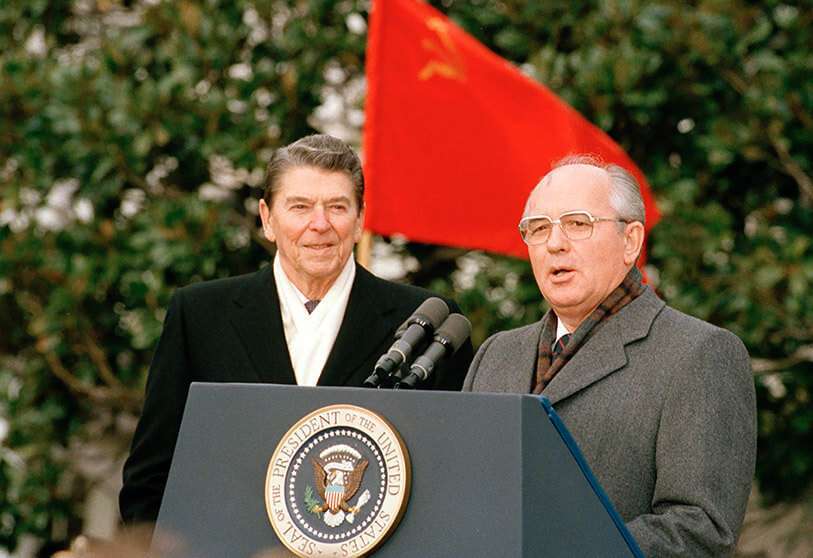
Gorbachev clearly detected the problem and wanted to change the trend in the USSR of a lack of private economic initiative and the absence of free information and individual freedoms, which were subjugated and subordinated to the guidelines imposed in an iron-fisted manner by the CPSU. The aim was to give more leeway to the population and to open up the Soviet economy in order to liberalise it and give more space to private initiative and not so much to the state interventionism that had marked the entire history since the creation of the USSR back in 1922. Until the 1960s-70s, the USSR seemed to be holding its own against the United States, and even in the space race there were great successes such as that of cosmonaut Yuri Gagarin, who was the first man to travel into outer space in 1961, or Valentina Tereshkova, who was the first woman to go into space, in 1963. But from the mid-1970s onwards and into the 1980s, the Soviet decline was significant due to the collapse of an economic system that had run out of steam and was showing signs of exhaustion.
Gorbachev came to power in 1985 and implemented a series of measures to open up the country, bring it closer to the West and liberalise it internally, which together became known as perestroika. This package of initiatives included glasnost, or information transparency, which marked a turning point in Soviet society, as it allowed greater freedom of expression and opinion and helped the population to gain a real understanding of the national situation, marked by a major crisis and a high level of corruption among the Soviet ruling class, which had privileges that were not enjoyed by the vast majority of citizens who had to endure hardship, with shortages of basic products that the economic and productive model could not provide, compared to a Western bloc in which the population had a much better standard of living.
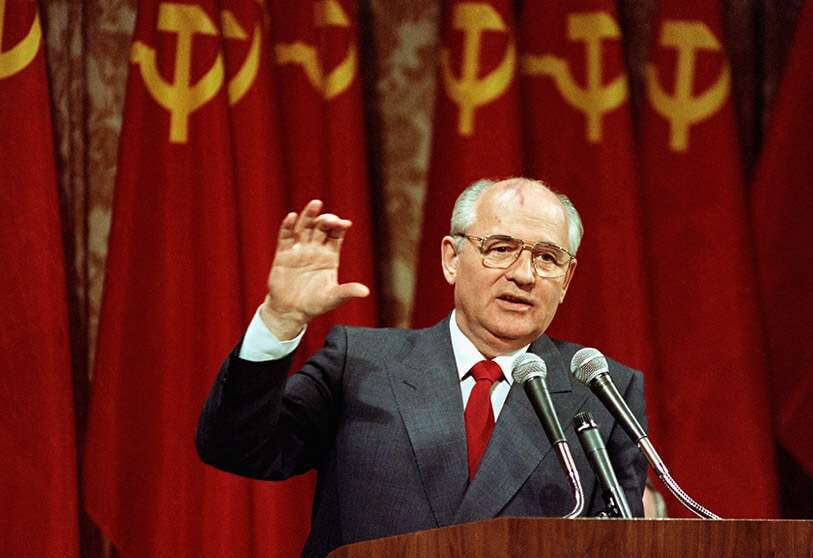
However, the situation became quite unstable and the Soviet castle began to collapse, with widespread social protests demanding a rapid improvement in the situation, and also with the independence yearnings of several Soviet republics that left the USSR one by one at the beginning of the 1990s, starting with the Baltic countries (Estonia, Latvia and Lithuania).
Gorbachev, faced with such upheaval, tried to keep the change from being so abrupt, but there were sectors that sought a more radical change, as opposed to the nostalgics, including important sectors of the army, who wanted to go backwards and maintain the Soviet system. In the end, Gorbachev had to give way to those who demanded a greater rupture and was replaced by Boris Yeltsin, who would later become president of what is now the Russian Federation, flying the current Russian flag and leaving behind the traditional red Soviet flag of the hammer and sickle.
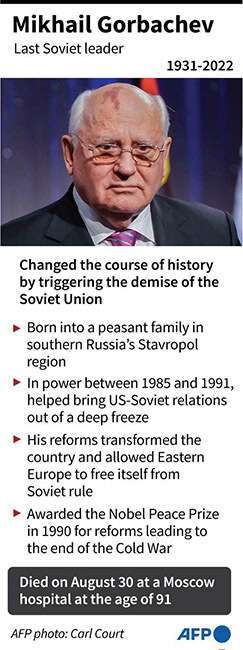
The figure of Mikhail Gorbachev is highly respected in Europe; in fact, he won the 1990 Nobel Peace Prize for his work in favour of pacification and rapprochement between the West and the East, highlighting the understanding he eventually reached with the United States. He was one of the key leaders who brought about the reunification of Germany in 1990, after the division that existed between the Federal Republic of Germany (aligned with the Western and capitalist bloc) and the Democratic Republic of Germany (integrated into the communist bloc controlled by the USSR). It also sealed the START nuclear arms limitation pact with the US in July 1991 and facilitated the withdrawal of Soviet troops from Afghanistan that lasted from 1979 to 1989.
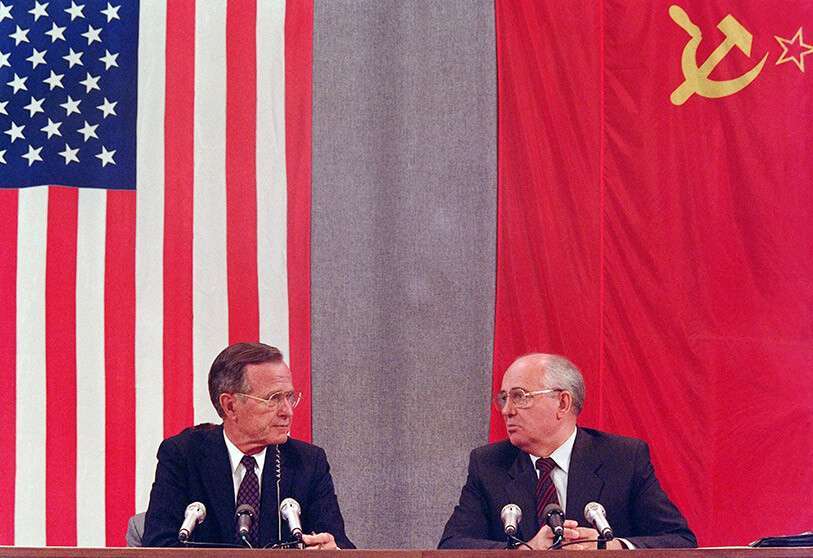
But within Russia he is now seen as the man who brought about the fall of the Soviet empire and the subsequent crisis that the country went through, with a significant rise in unemployment and social insecurity fuelled by an increase in crime and political and economic corruption, aspects that later marked the era of Boris Yeltsin.
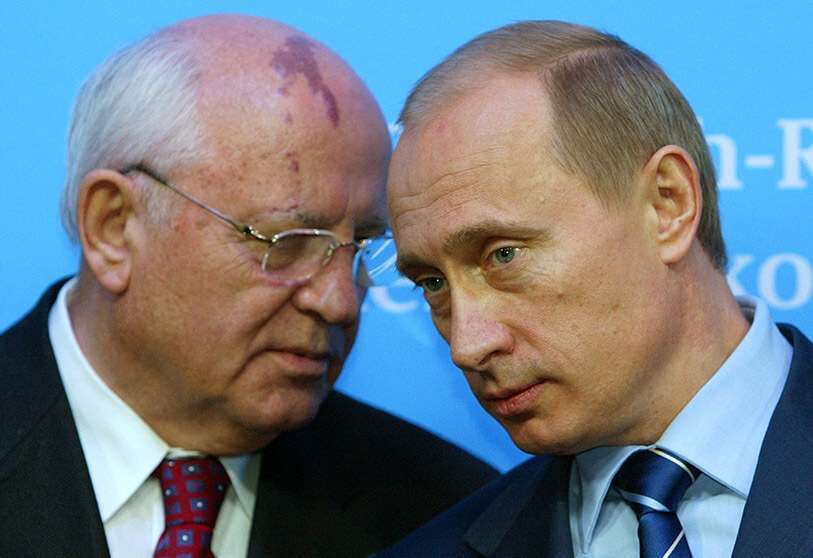
Mikhail Gorbachev is reviled in broad sectors of Russian society, even more so after current President Vladimir Putin's drive to establish a strong Russia that would recover the prominence and power of the former USSR, which is being demonstrated by the intervention in Crimea and the invasion of Ukraine, one of the former Soviet republics, which is suffering from Russia's new expansionist ambitions framed in a quest for greater power and national expansion.








